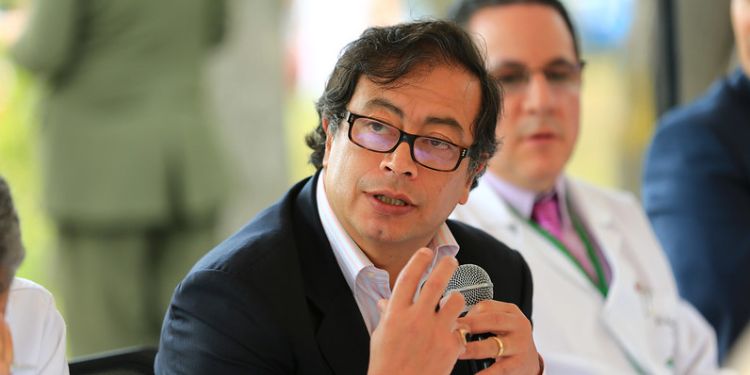MIAMI, United States. – Everything was very civilized. Very Colombian. Very polite. President Iván Duque, whom history will acquit because he has not put a peso in his pocket, called him, congratulated him and offered to meet with him. Álvaro Uribe said something that honors him. It was his first reaction to Petro’s Triumph on Sunday June 19: “To defend democracy it is necessary to abide by it. Gustavo Petro is the president.”
Gustavo Petro, on the other hand, thanked the “young people” and “the oppressed minorities.” With the first he is right. His victory cannot be explained without the youth who gave him his first vote at 18, at 19, 20 or 21, helped by the lack of historical memory, given that the Taking of the Palace of Justice occurred in remote times, almost biblical, 1985. As for the “oppressed minorities”, it is not known exactly to whom he refers. It has to be explained.
How does he have to explain the gibberish he has put together by saying that he is going to invent “capitalism and democracy”. With all the deficiencies that exist in the economic machinery of Colombia, there are indeed private companies and these are governed by the market, as is well known in the nation: there is capitalism there. At the same time, how did he come to power if the universally respected democratic model did not exist?
Daniel Raisbek is a liberal thinker from the Cato Institute. And he said that Petro is part of the usual political “establishment”, albeit with the additions of “left-wing academics, progressive journalists or influencers, public sector goons and career politicians, according to the ideology that, gelatinously, unites these subgroups, the heavily intervened national economy, which ranks 92nd on the Frazier Institute’s Index of Economic Freedom.”
The top 30 spots are known to be the usual suspects. The best organized countries, the most prosperous, those that always have a flood of immigrants knocking on their doors: the Scandinavians (Denmark, Sweden, Norway, Finland, Iceland), England, Switzerland, Luxembourg, the United States, Canada, France and Germany , Holland, Belgium, Italy, Spain, Ireland, Austria, Portugal and, lately, to show that water always reaches its level, the Czech Republic or Czechia.
The next 30, those that remain from the European Union, plus the rich Arabs – Qatar, the Emirates, Saudi Arabia – and some Caribbean islands, such as the Bahamas, Barbados, the Dominican Republic. Or like Martinique, Puerto Rico and Curaçao, which are free, but not sovereign. To which are added some Asian corners (Singapore, Taiwan, South Korea). There is a very clear link between freedom and prosperity. That is perfectly transparent in the “Frazier Index” or the “Heritage”. Both are worth examining.
In general, these indexes take into account several categories: The Rule of Law (the existence of property rights, the respectability of the courts and the decency and honesty of governments). The size of the government (measured by the percentage of taxes, the intensity of public spending and fiscal habits). Regulatory effectiveness (freedom to do business, freedom to work, and freedom to exchange or do with profits as the owners please). The true opening of markets (really free trade, freedom to invest and financial freedom).
The problem that will be presented to Petro, and to anyone who governs, is that if he chooses the market, capitalism and democracy (as he has promised), there is no doubt that he has selected the best option according to human nature. , but that has a cost in income differences, in social imbalances and in a different way of understanding life.
On the other side of the phenomenon, if you choose to control the nature of human beings, you will be substituting autocracy for democracy and giving rise to a flatter, grayer world. (Believe me, Mr. Petro: I come from a society in which freedom was sacrificed to achieve equality). In the end they only achieved cynicism and the most abject misery.
OPINION ARTICLE
The opinions expressed in this article are the sole responsibility of the issuer and do not necessarily represent the opinion of CubaNet.
Receive information from CubaNet on your cell phone through WhatsApp. Send us a message with the word “CUBA” on the phone +1 (786) 316-2072, You can also subscribe to our electronic newsletter by giving click here.





